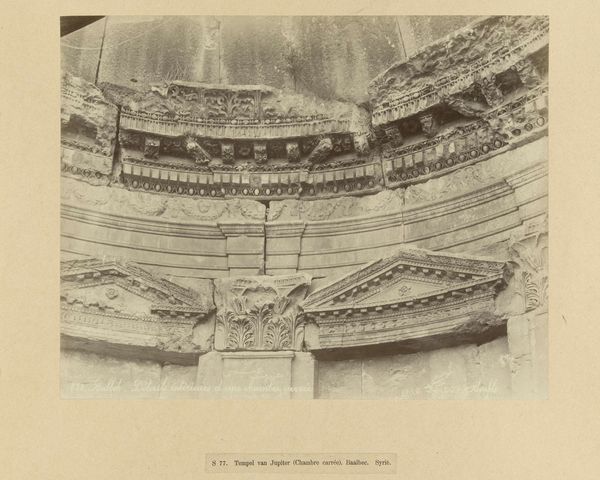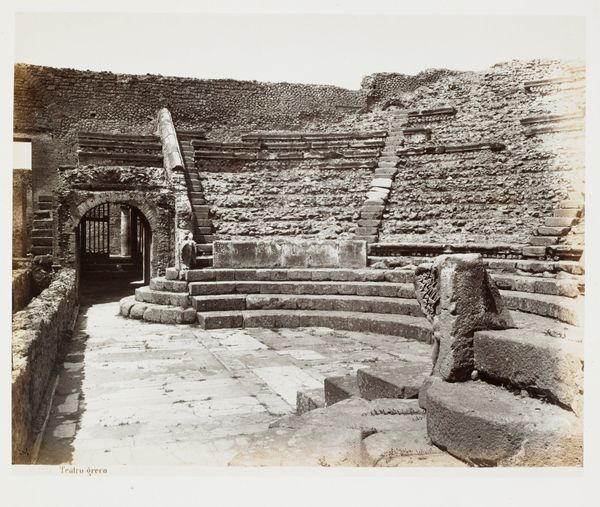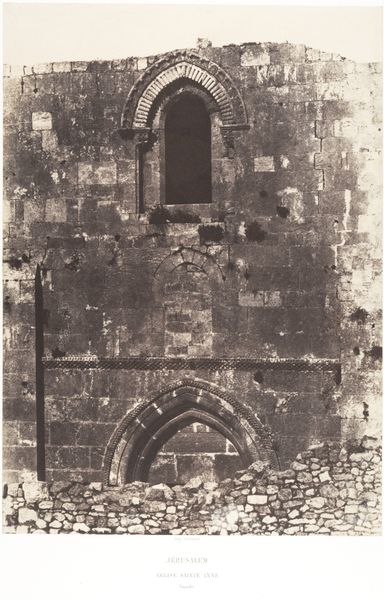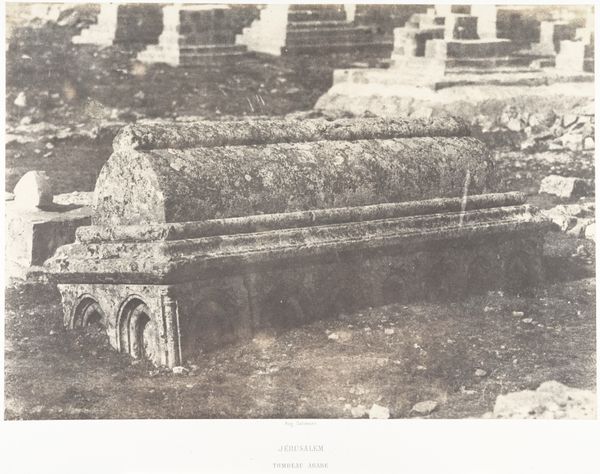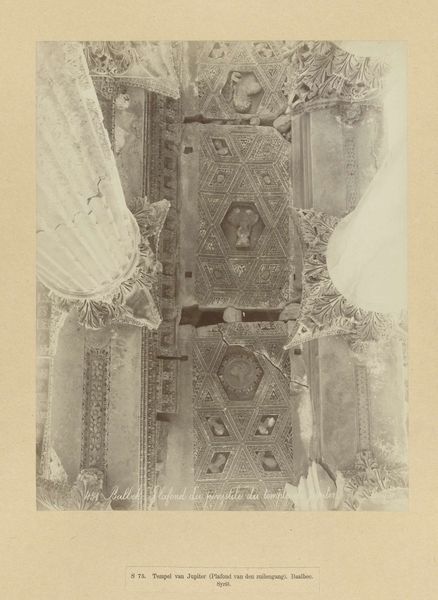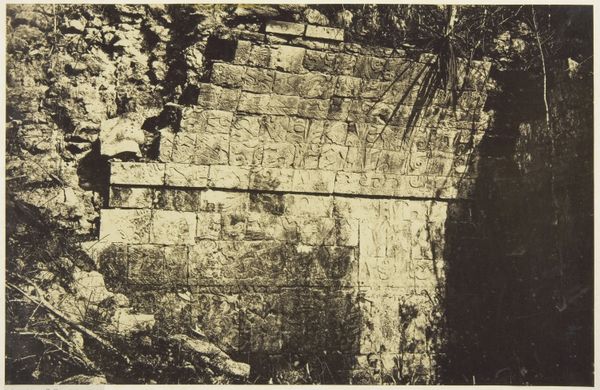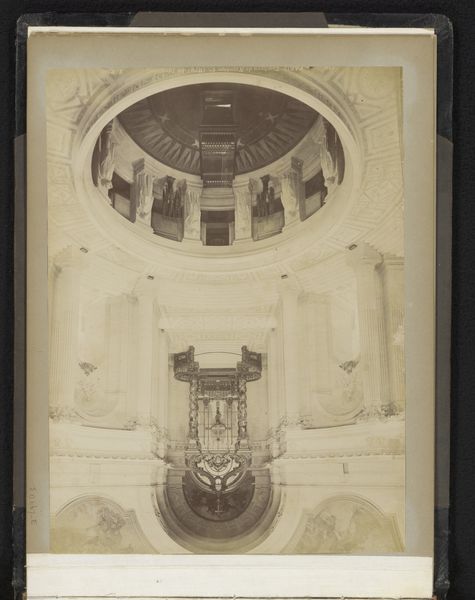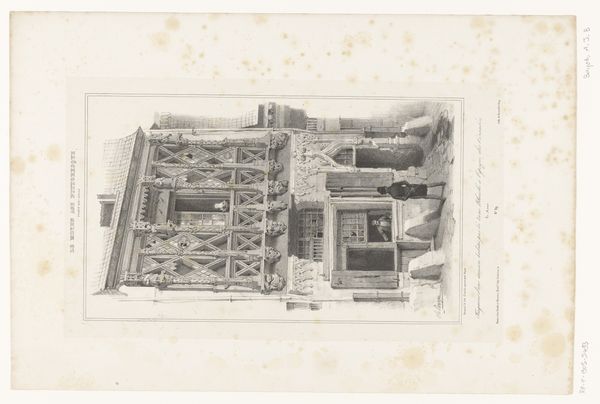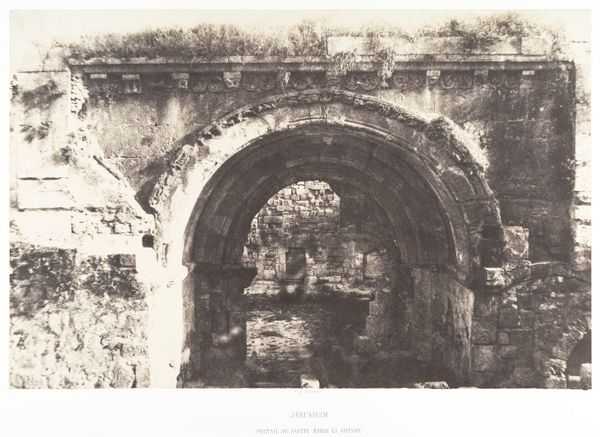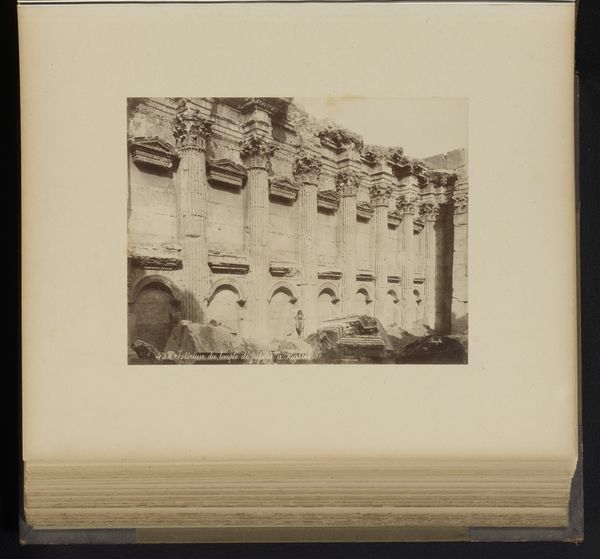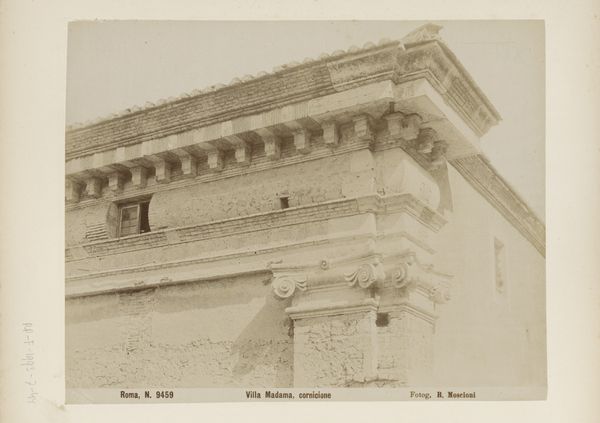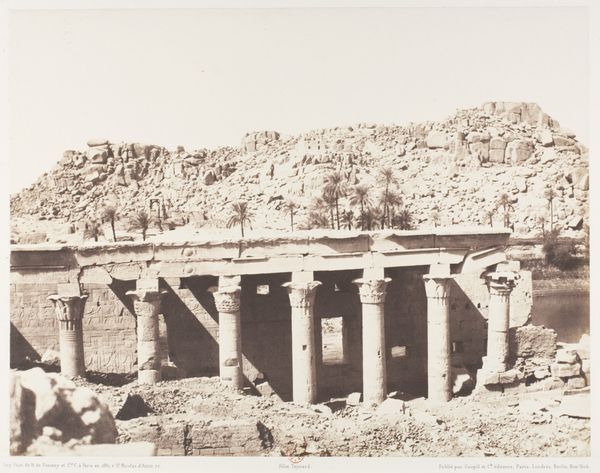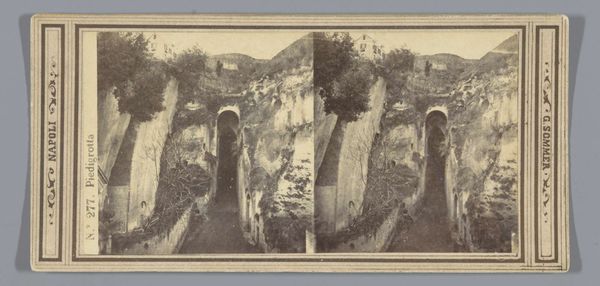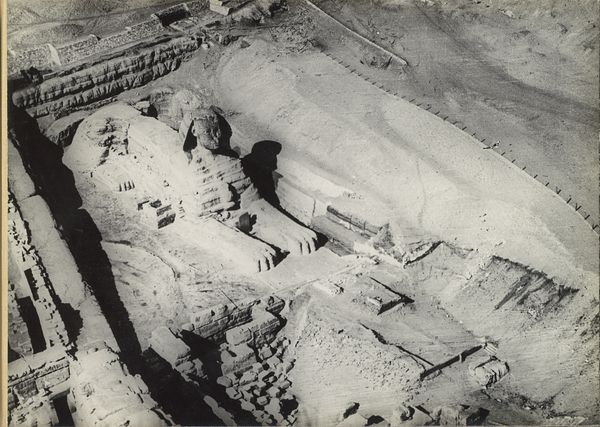
print, photography, photomontage, architecture
#
photo restoration
# print
#
landscape
#
photography
#
photomontage
#
architecture
Copyright: Rijks Museum: Open Domain
Curator: This photomontage, possibly from 1906, is titled "Prentbriefkaart aan Philip Zilcken." It seems to depict a structure in Les Baux. Editor: There’s a melancholy clinging to it. The monochrome palette coupled with the crumbling stone architecture suggests decay and the slow march of time. I am really drawn to the texture, however; I would love to know more about its construction. Curator: Well, we know this area was once a bustling medieval fortress, a hotbed of Provencal power, only to decline significantly over the centuries. So the romantic portrayal certainly speaks to the broader cultural narrative of the medieval past and perhaps comments on the impact of industrial development on historical sites. Editor: Industrial development undoubtedly changed resource management of this sort, moving away from local stonecutting. I see the pillars and arched openings - one imagines they took considerable skill and collective labor to erect, only for them now to erode into the landscape. What sort of social forces lead to the monumenting, the preservation, or, seemingly, in this case, the decay of architecture? Curator: A complicated mix of political and economic factors were at play. Consider the growing accessibility of travel in the early 20th century and increased demand for the tourism sector, which started seeing beauty even in the ruins. Nostalgia for the pre-industrial and an exotic regionalism also was important at that time. Editor: Interesting thought to view decay and ruination through a lens of early tourism - yet this also draws me back to material concerns of commodification. Postcards of structures that once had great utility slowly became just things of art in themselves. The image begins as a means of remembering lived spaces but ends up merely reproduced. Curator: I think we agree on the image's ability to preserve something about a lost time, though from different perspectives. Thank you for giving it context with materiality and class. Editor: Yes, thank you for highlighting that social context helps appreciate all the subtle detail of its creation, as well as what survives.
Comments
No comments
Be the first to comment and join the conversation on the ultimate creative platform.
